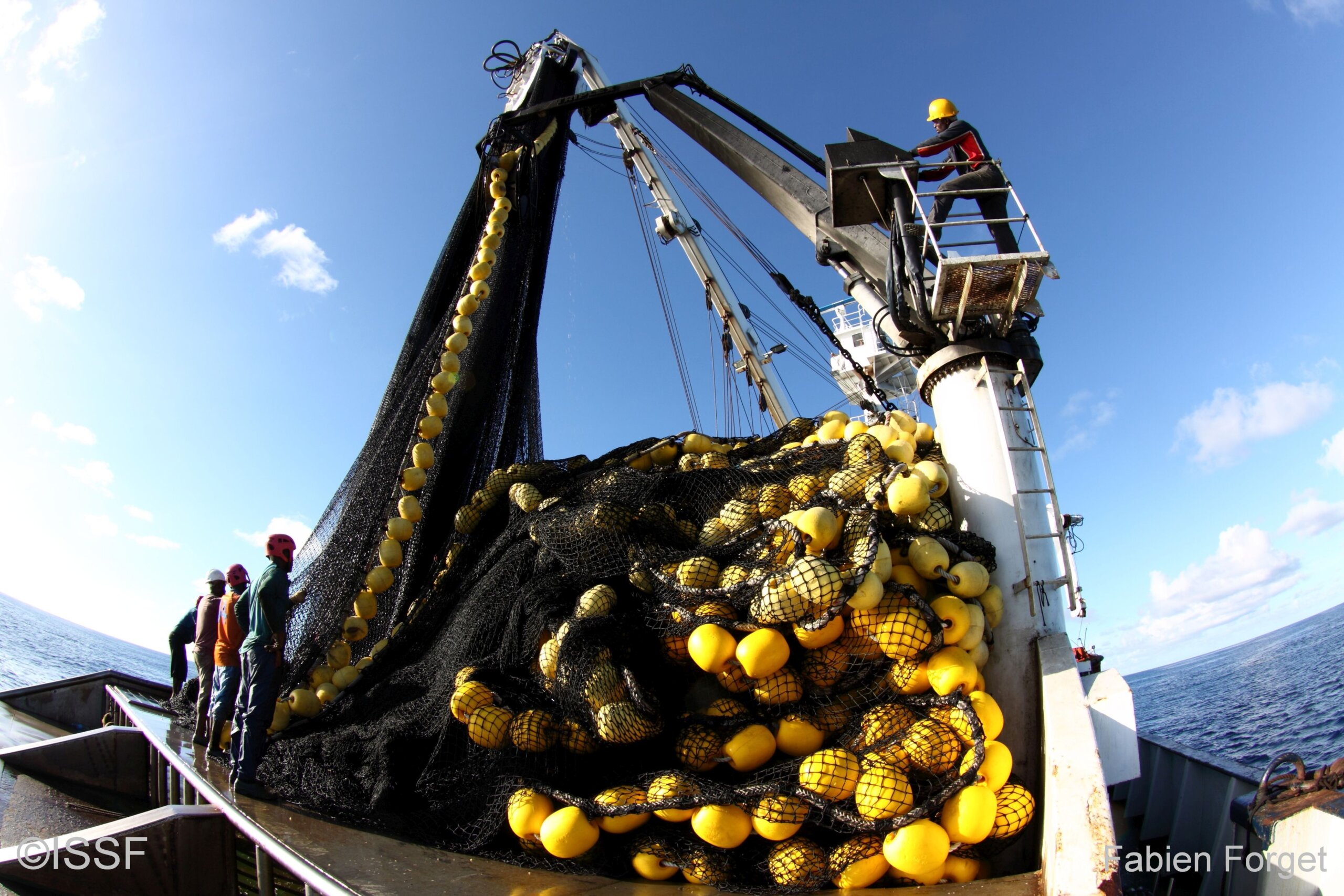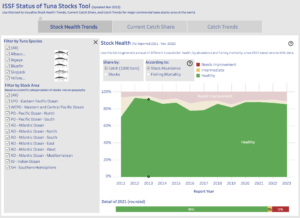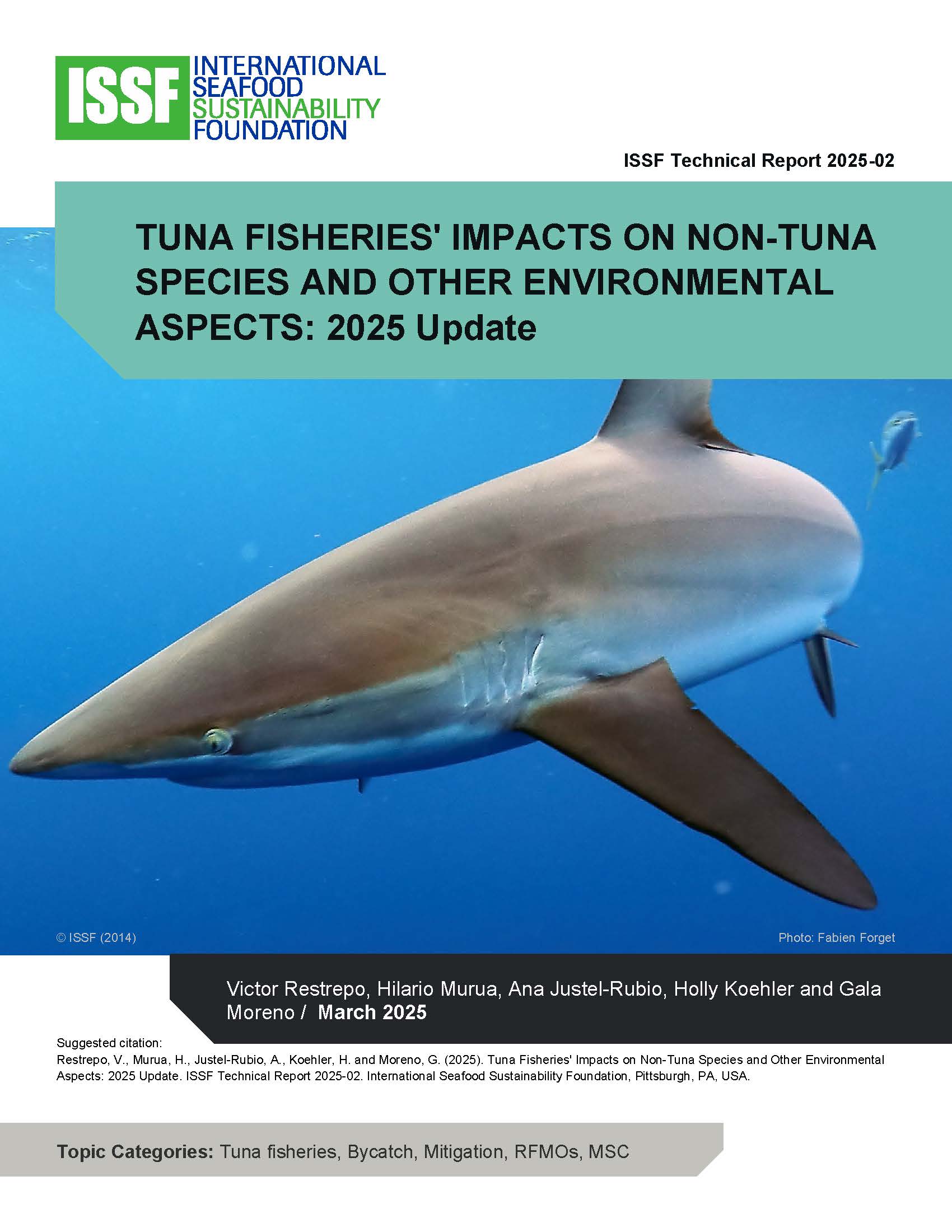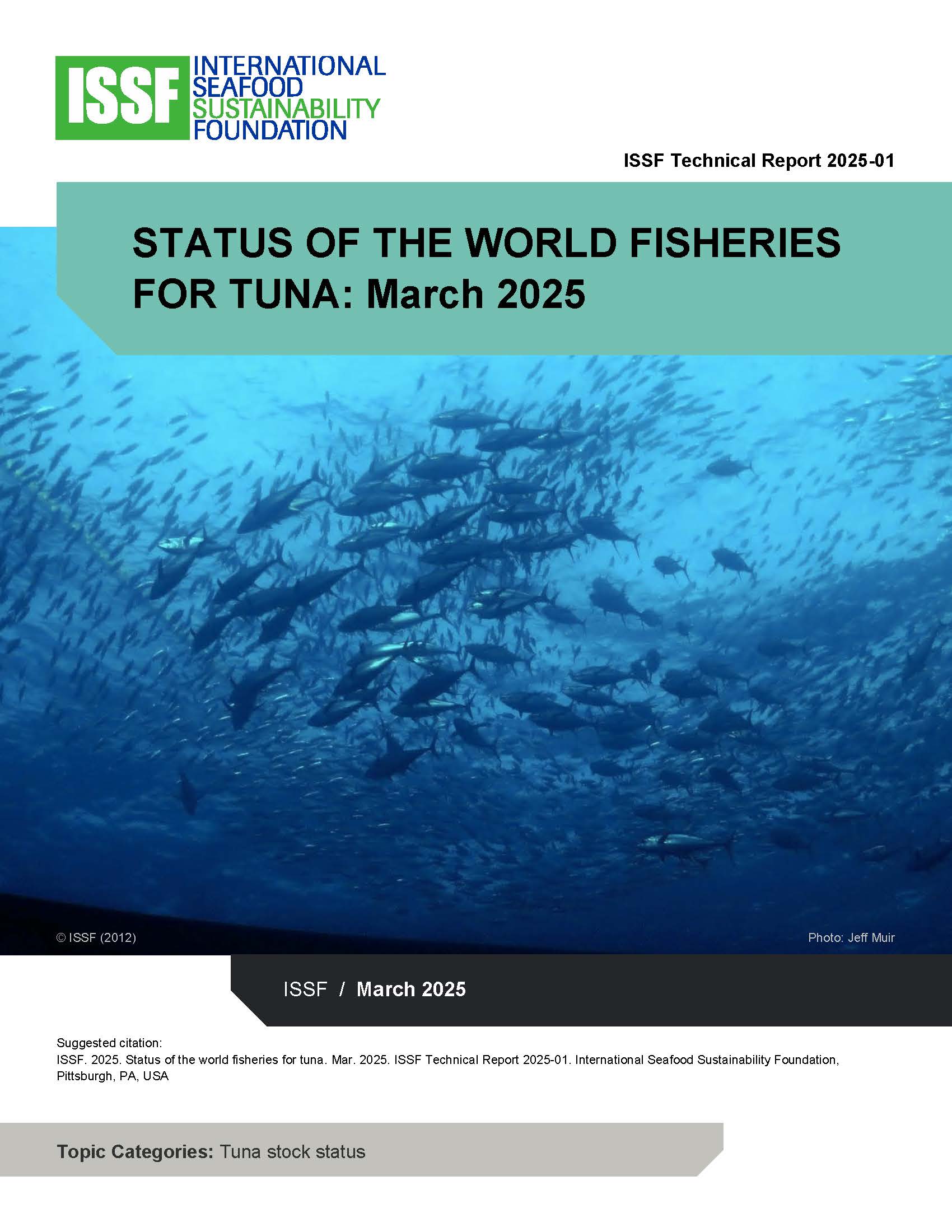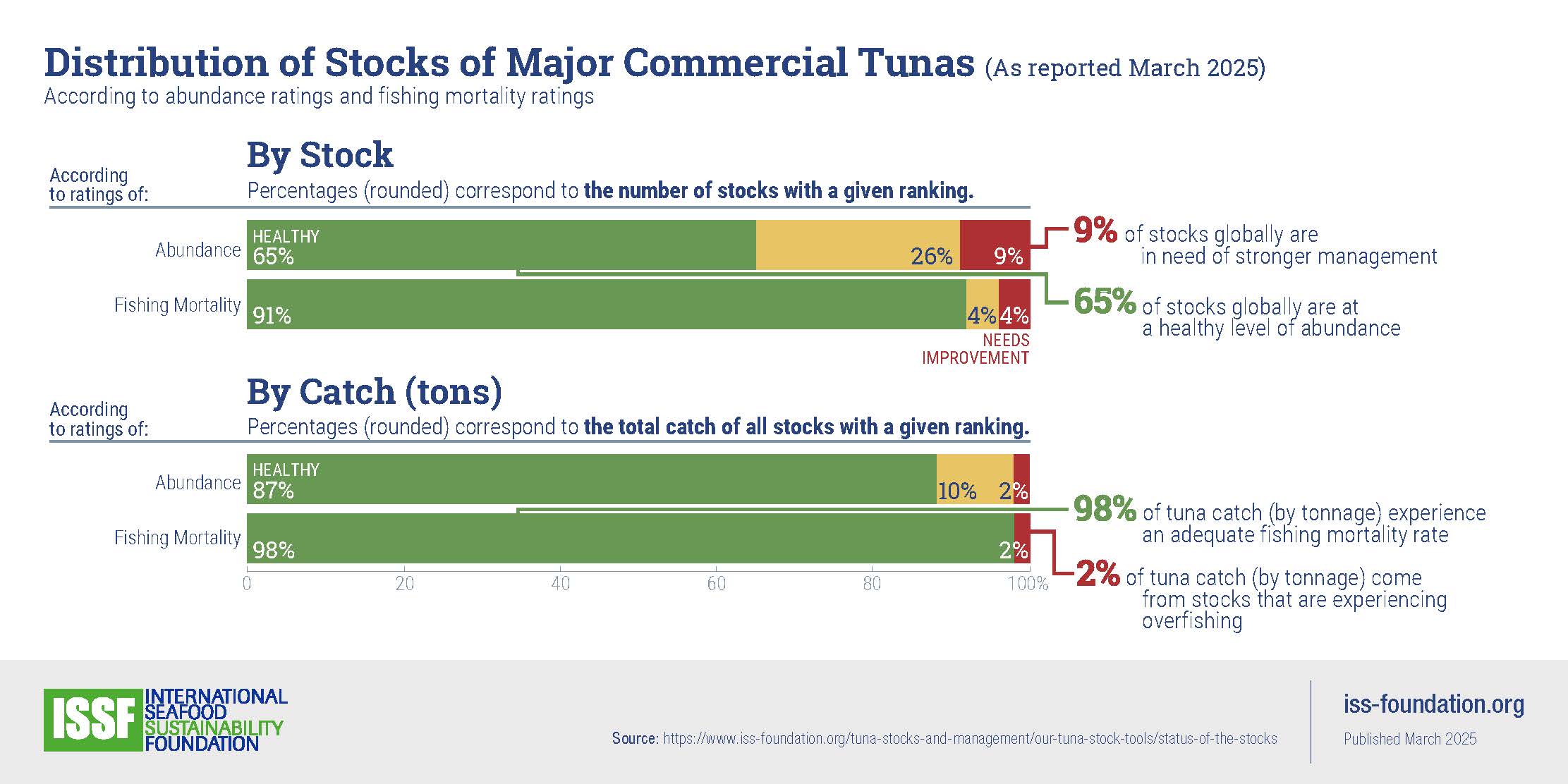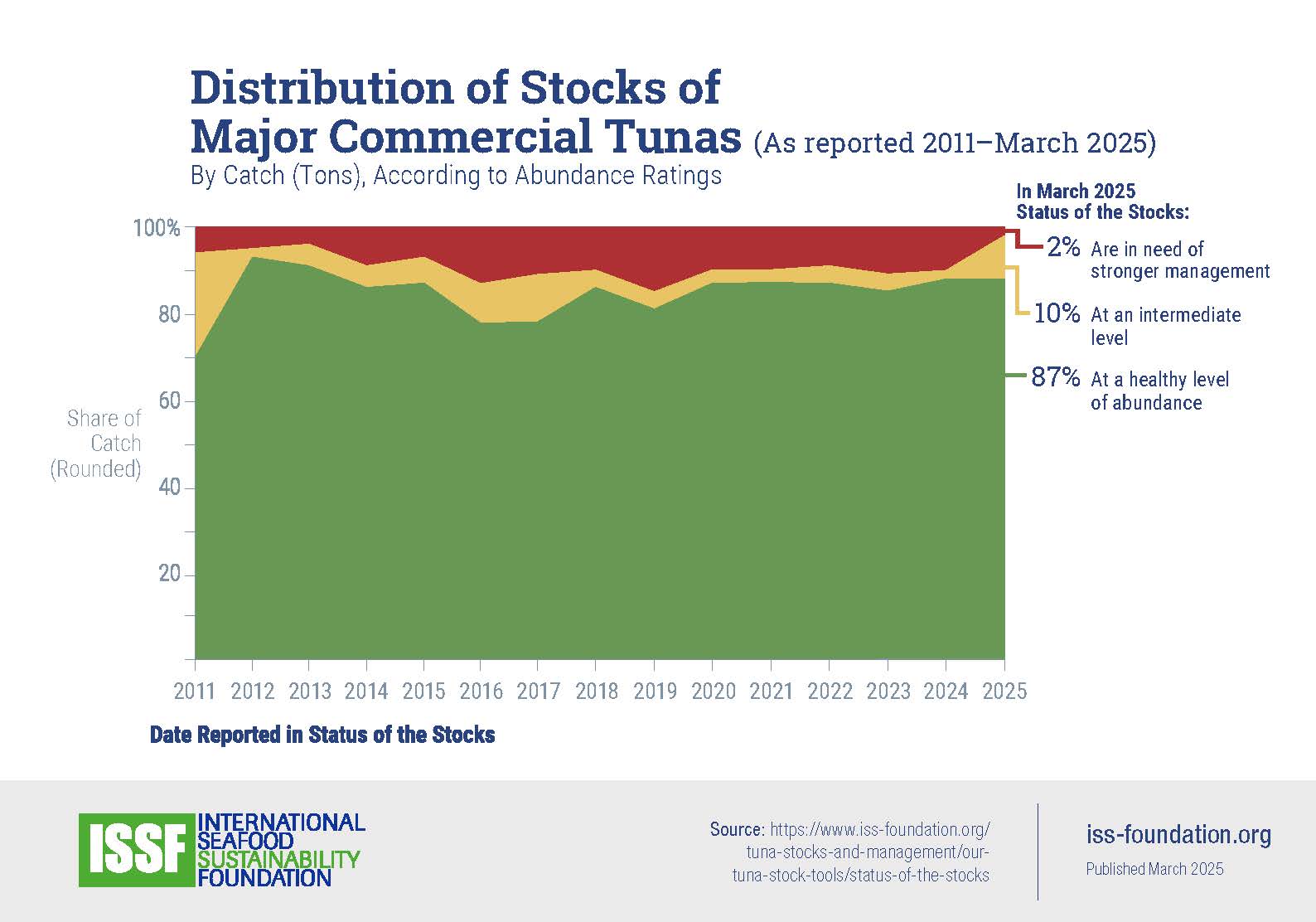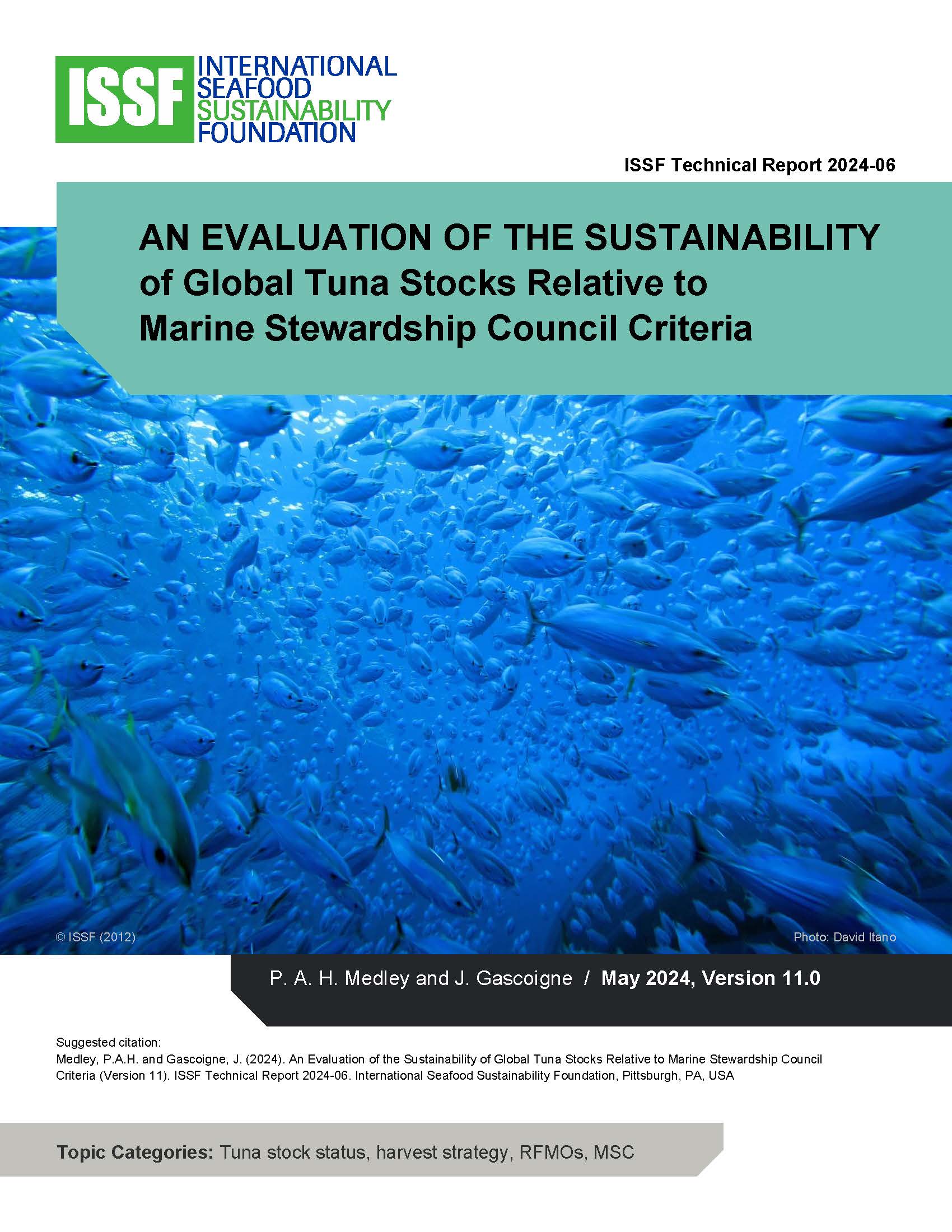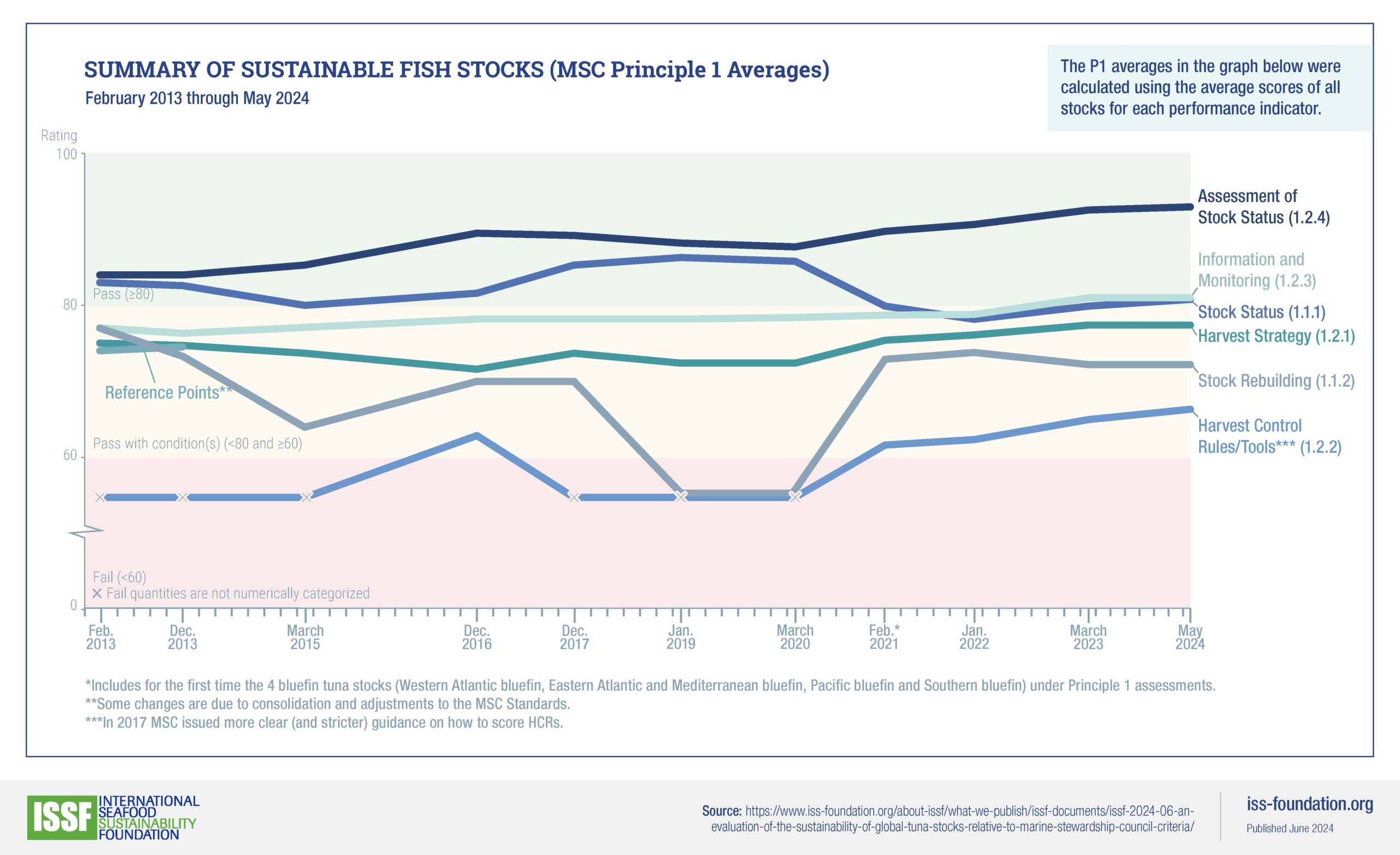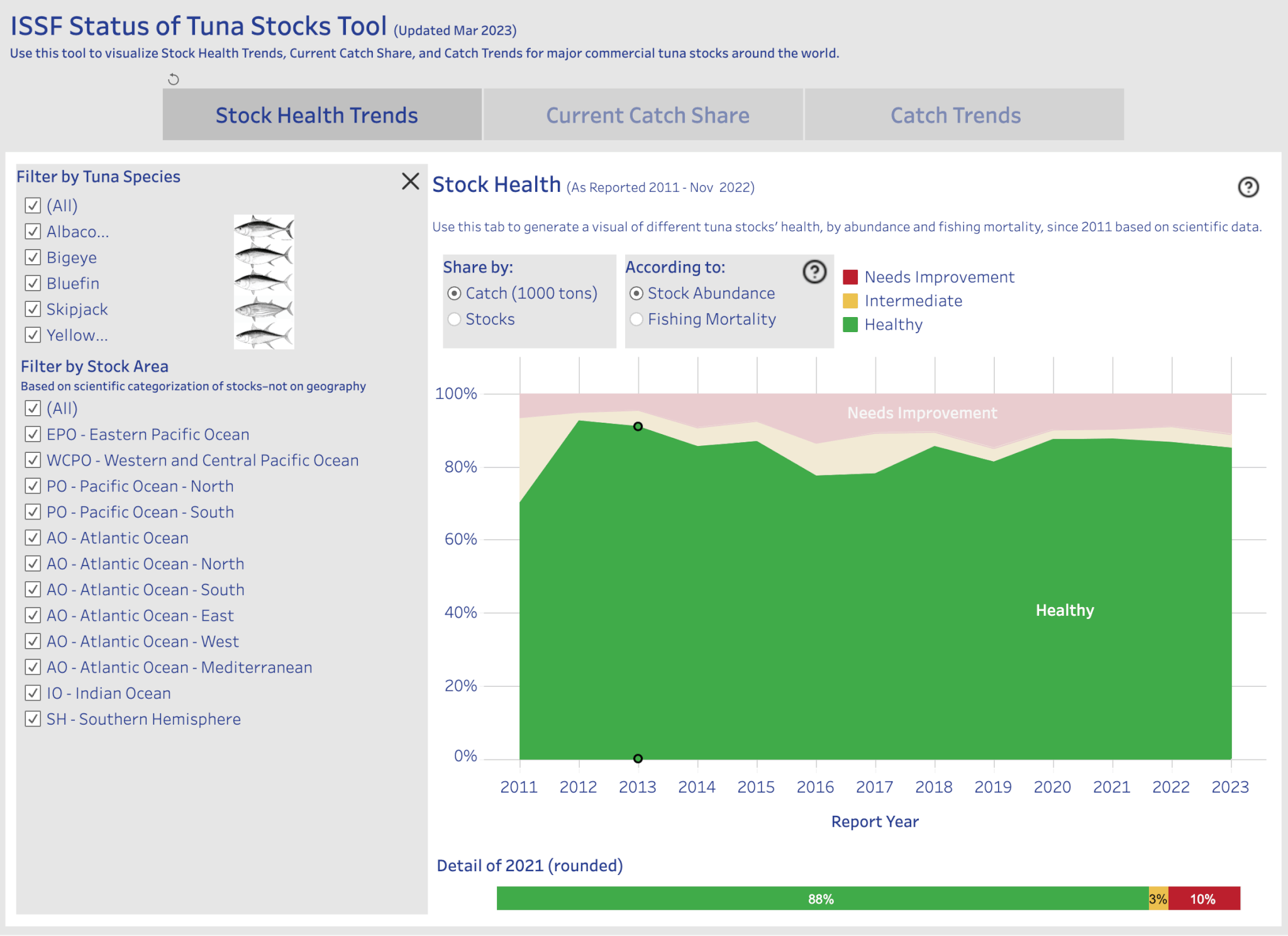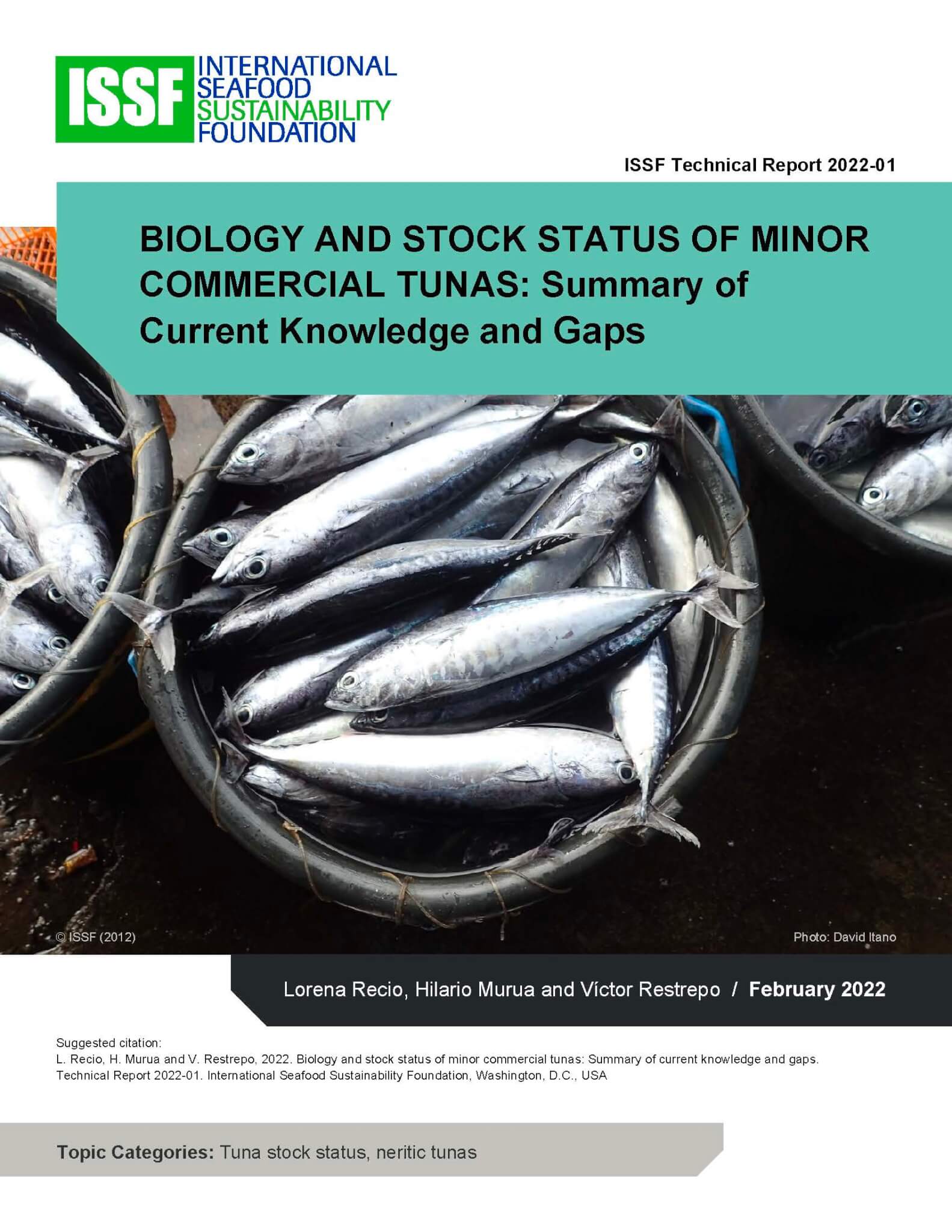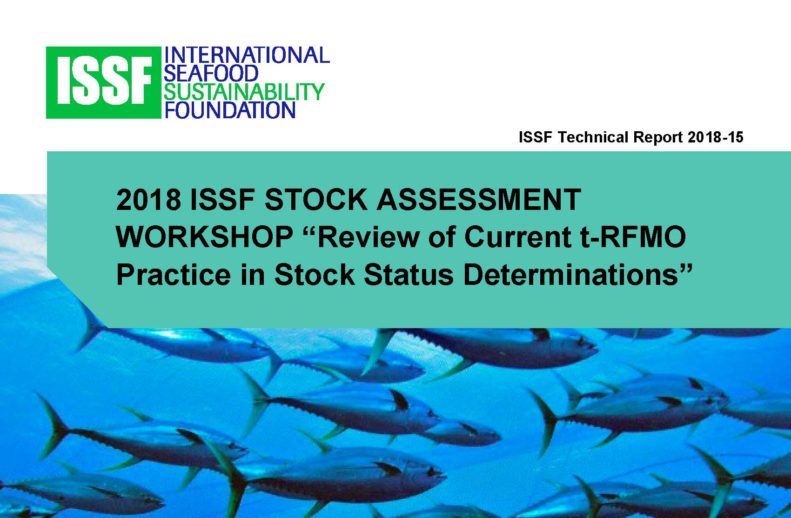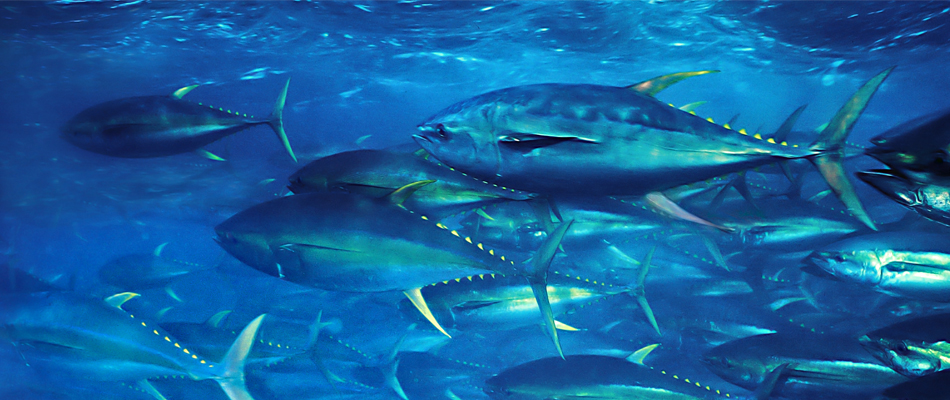
Status of the Stocks
ISSF’s Status of the World Fisheries for Tuna, also known as the “Status of the Stocks” report, is published several times per year and is one of our most-read publications.
The report provides information on the status of major tuna stocks as well as on bycatch and bycatch mitigation issues in tuna fisheries.
It also reviews programs by Regional Fisheries Management Organizations (RFMOs) to manage tunas and related species.
Our Signature Report
Our Status of the Stocks report includes:
- Summary results of the most recent scientific assessment of the 23 commercial tuna species worldwide
- Assessments of the effectiveness of current management measures adopted by RFMOs
- Rankings of the 23 stocks using a consistent methodology focused on Abundance and Exploitation/Management (i.e., fishing mortality)
Information on Environmental Impact (i.e., bycatch) appears in a separate report, ISSF 2025-02: Tuna Fisheries’ Impacts on Non-Tuna Species and Other Environmental Aspects: 2025 Update.*

Latest Tuna Stock Status Report
Our current Status report (PDF) was published in March 2025. Previous versions of the report are available by request.
Interactive Tuna Stock Status Tool
Use our interactive tool to visualize certain data from the Status report:
- View trends in tuna stock health since 2011, filtered by species and ocean location, and based on catch or stock, and on stock abundance or fishing mortality
- View the species composition of the total tuna catch — including catch percentages by fishing method — in different ocean locations, based on the most recent data
- View catch trends by fishing method since 1950, filtered by tuna species and stock area.
RELATED RESOURCES
MSC Stock Evaluation Report
The Marine Stewardship Council (MSC) defines fishery sustainability based on three principles, the first of which relates to the status of a stock.
Our report ISSF 2024-06: An Evaluation of the Sustainability of Global Tuna Stocks Relative to Marine Stewardship Council Criteria uses the MSC scoring system to evaluate 23 tropical and temperate tuna stocks, including bluefin.
Peer-Reviewed Articles
See a list of peer-reviewed articles co-authored by our staff, Scientific Advisory Committee members, or other scientists whose projects were partially or fully funded by ISSF.
RELATED NEWS
